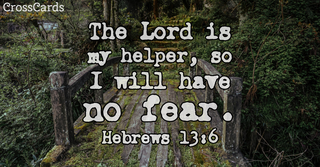
- Recent Translations
- All Translations
Yehudim in Moshiach 13:8
Share
Settings
Yehudim in Moshiach 13:8 Meaning and Commentary
Jesus Christ, the same yesterday, and today, and for ever.
] Who is the substance of the word spoken by the above mentioned rulers, the author and object of their faith, and the end in which their conversation terminated. These words may be expressive of the duration of Christ: he was "yesterday", which does not design the day immediately foregoing, nor some little time past, but ancient times, formerly, of old; and though it does not extend to eternity, which is true of Christ, yet may be carried further than to the days of his flesh here on earth, even to the whole Old Testament dispensation; yea, to the beginning of the world, when he existed not only as the eternal Word, the everlasting "I am", but as the Saviour and Redeemer of his people; during which dispensation he frequently appeared in an human form, and was the sum of all promises and prophecies, and the substance of all types and shadows, and the spiritual food of his people: and he is "today" under the Gospel dispensation; in his person as God-man, and in his offices as prophet, priest, and King: and will be so "for ever": he will never die more; his kingdom is an everlasting kingdom, and his priesthood an unchangeable one. Moreover, these words may regard the immutability of Christ; who is unchangeable in his person, perfections, and essence, as God; and in his love to his people; and in the fulness of his grace, and in the efficacy of his blood, and in the virtue of his sacrifice and righteousness: it may be observed, that (o autov) , translated "the same", answers to (awh) , "he", a name of God, ( Psalms 102:27 ) ( Isaiah 48:12 ) and which is used in Jewish writings F24 for a name of God; and so it is among the Turks F25: and it is expressive of his eternity, immutability, and independence; and well agrees with Christ, who is God over all, blessed for ever.
F24 Seder Tephillot, fol. 2. 1. & 4. 1. Ed. Basil. fol. 6. 2. & 7. 1. Ed. Amstelod. Zehar in Exod. fol. 35. 4. Maimonides in Misn. Succa, c. 4. sect. 5.
F25 Smith de Moribus Turc. p. 40.




